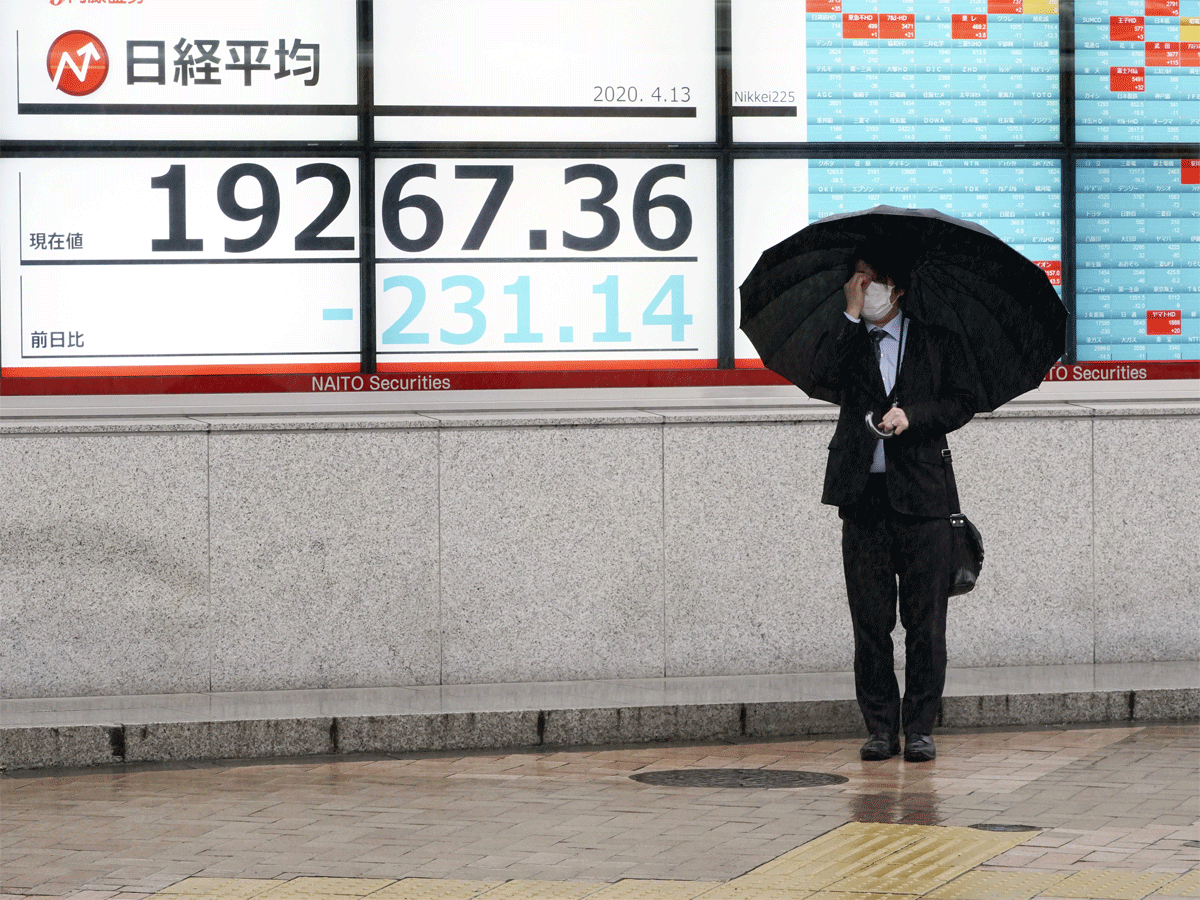INSUBCONTINENT EXCLUSIVE:
WASHINGTON/TOKYO: Asian share markets slipped to two-week lows on Wednesday as the floor fell out from under crude prices, exposing the deep
economic damage wrought by the global coronavirus health crisis.
Skittish investors sought the safety of government debt as Brent oil
futures plunged for a second day to a low last seen almost two decades ago, fueled by a swelling world crude glut.
The dizzying dive in oil
has turned investors away from stocks, and has given fresh urgency to bearish voices who are bracing for a catastrophic decline in asset
prices as the COVID-19 pandemic wrecks the world economy.
MSCI's broadest index of Asia-Pacific shares outside Japan lost 0.8% while
Japan's Nikkei slumped 1.3%.
Earlier this week, the May United States WTI futures contract crashed into negative territory for the first
In addition to massive oversupply concerns, analysts say the plunge also highlights the technical constraints the market faces in responding
to shocks.
"The negative price for May WTI futures was probably an anomaly, but it also was a symptom of bigger underlying issues that the
industry must address," said Arij van Berkel, who leads the energy research team at Lux Research in Amsterdam.
"Even though the oil industry
theoretically has a diversified product portfolio, the current situation shows that its ability to switch between markets is extremely
limited."
International benchmark Brent futures dropped below $20 per barrel on Tuesday and last traded at $18.62, down 3.7%
So far this week, it has lost 33.7%.
United States June crude futures traded at $12.78 per barrel.
On Wall Street, the S-P 500 lost 3.07%
and the Nasdaq Composite, which has outperformed due to increased demand for various internet services amid lodckdowns, dropped 3.48%.
"The
plunge in oil prices sparked fresh caution about the stock market
Overnight, companies that have been seen as a winner in the post-corona world, such as Amazon, fell
That is a worrying sign," said Naoya Oshikubo, senior manager of research at Sumitomo Mitsui Trust Asset Management.
Amazon fell 2.7% on
Tuesday.
The risk-averse mood offset news that the United States Senate on Tuesday unanimously approved $484 billion in fresh relief for
the United States economy and hospitals hammered by the pandemic.
Governors of about half a dozen United States states pushed ahead on
Tuesday with plans to partially reopen for business but some health officials warned doing so could trigger a new surge in coronavirus cases
- fears shared by some investors.
As the difficulties of restarting the United States economy sank in, United States Treasury yields
tumbled, with the five-year note hitting a new record low on rising prices for bonds: one of the safest assets.
The dollar rose to a
two-week high against a basket of currencies, as investors fled riskier assets for the world's most liquid currency while putting pressure
on oil-linked currencies such as the Norwegian crown and the Canadian dollar.
The safe-haven yen held firm at 107.79 to the dollar while the
Swiss franc stood near five-year high against the euro at 1.05255 franc.
The British pound nursed losses at $1.2287 after a 1% fall in the
previous day also due to the lack of clarity on Brexit.
The top official at Britain's foreign ministry said on Tuesday that he expected
Prime Minister Boris Johnson to stick to the existing end of December deadline to reach a post-Brexit trade deal with the European Union
despite disruptions caused by the pandemic.

